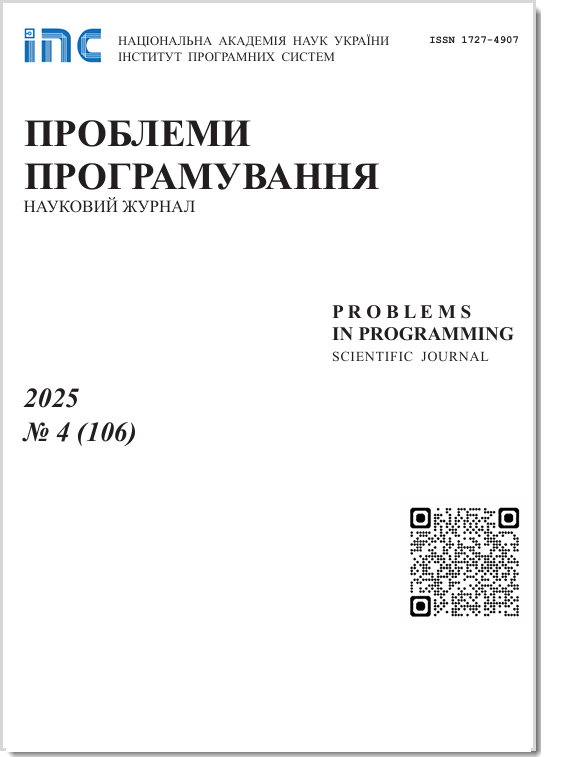Ontological similar systems for analysis of texts of natural language
Abstract
In this paper an approach to building of Ontological similar systems for analysis of texts in natural language (on this time only Ukrainian languages) is considered. Such systems are built on the base of formal definitions of ontology O = (X, R, F, A (D, Rc)) and syntactical and semantic analysis by using elements of Descriptive logics. When constructing an ontology, a subject domain is indicated and includes concepts from X and relations from R. Such indicates are necessary because of semantic sense of concepts and relations can be depend of the domain. Specification of domain is necessary to define more precision of the interpretation F. Additional adjustments of F are described by the axioms A of this domain and the restrictions Rc, which have the form of additional definitions (clarifications, constraints on possible values, etc.) of the properties of the domain of interpretation D. An input text T considered as domain of interpretation D.
From Descriptive logics we use definition of syntax of concepts and relations. Using this syntax ef concepts and definitions we obtain first order logic and can do reasoning and obtain conclusions from information derived from input text. The input text T considered as the domain D of interpretation F for concepts X and relations R which are derived from it.
Syntactical and semantic result of analysis is used as input data for building of ontology. As a result of such analysis is the partition of objects on the groups which are correspond of the parts of speech. By using this information and additional adjustments we build data knowledge of the input domain.
In terms of user the domain D looks like an object of the relational database, which includes only unary and binary relations. The difference lies in the fact that classical database relationships are closed within this domain, while D as a database is open because the normalized representation of knowledge is executed in a situation where there is no assumption about the completeness of these knowledge. In addition, D relates the semantic relations of the concepts and the relation, which is not analogous to the relational database semantics.
Problems in programming 2018; 2-3: 132-139
Keywords
Full Text:
PDF (Українська)References
Palagin A.V., Petrenko N.G.. Ontografical explanatory dictionary for engineering knowledge. Kiev: Interservice. 2017. 477 p.
Darchuk N.P. Computer annotation of texts in Ukrainian language: results and perspectives. Kiev: Ukraine Education. 2013. 543 p.
Baader F., Calvanese D., McGuinness D.L. and other. The Description Logic Handbook. Cambridge: University Press. 2007. 601 p.
https://doi.org/10.1017/CBO9780511711787
Kryvyi S.L., Darchuk N.P., Jasenova I.S., Golovina A.L., Soliar A.S. Methods and tools of systems for knowledge representation. Publisher: ITHEA. - Inter. journ. «Information Content and Processing». 2017. Vol. 4. N 1. P. 62-99.
DOI: https://doi.org/10.15407/pp2018.02.132
Refbacks
- There are currently no refbacks.









